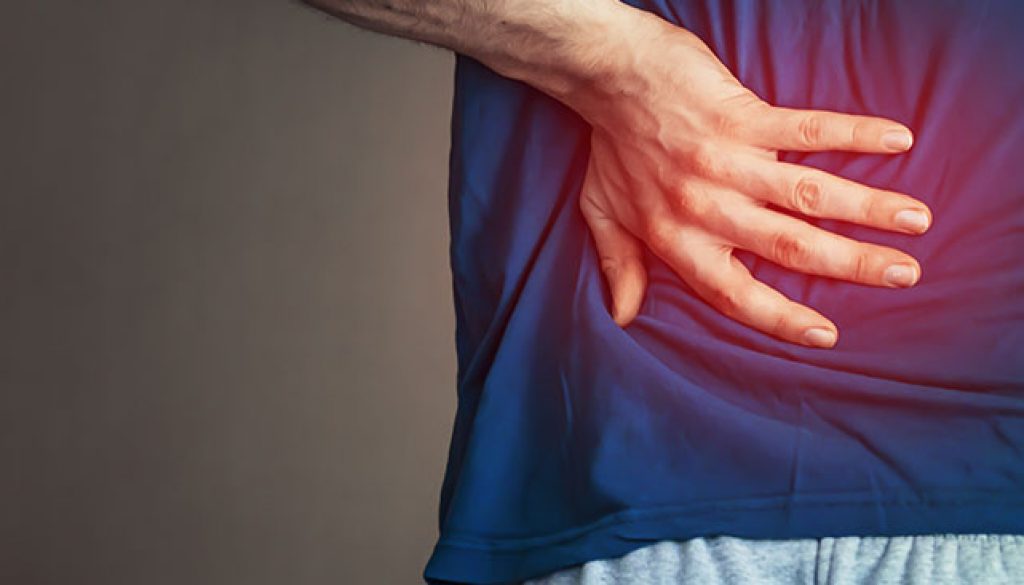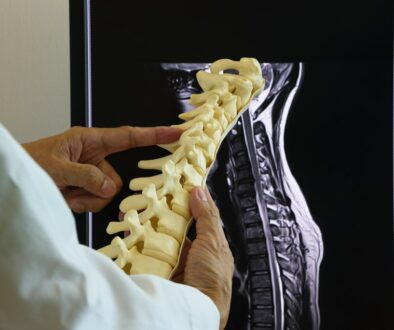Your Complete Spinal Surgery Recovery Guide
When you have problems with your spine, everyday life can become a painful burden. Our orthopedic surgeons have helped hundreds of patients get their lives back through spinal surgery. These operations require treating the delicate spaces between your vertebrae and the tiny nerves that comprise your spinal column.
(If you’d like a refresher on the parts of your spine, we’ve compiled some useful information about your spine you might want to read.)
After spinal surgery, it’s important to take care of yourself in order to ensure a full recovery. Your spine orthopedic specialist will have specific instructions for you that take into account the type of surgery you’ve had.
While post-op instructions will vary depending upon the surgery and your individual case, we wanted to provide some general guidelines on basic items you might find helpful.
What You Need to Know About Spinal Surgery Recovery
The first and most important thing to know about recovery from spinal surgery is to carefully follow all the instructions of your orthopedic surgeon or spine orthopedic specialist. He or she has tailored this information to fit your individual situation.
Keep an Eye on Your Wound
Don’t remove your bandages until your orthopedic surgeon says it’s okay. Keep a careful watch on your wound and let your doctor know immediately if your wound:
- Swells and starts to drain fluid
- Is very warm to the touch
- Opens up
- Becomes redder
Be sure to keep your wound dry for at least the first five to seven days. If you’re going to shower, cover the incision with plastic wrap. The first time you take a shower, you should have someone help you. Do not let water spray into the incision.
Make Sure Your Home Is Safe
This means eliminating all tripping hazards, such as area rugs, before you come home from the hospital. Bathtubs and showers should have non-skid mats. Consider raising the toilet seat and installing safety bars if you haven’t already.
Don’t Smoke
We know you’ve heard it before, and we know you’re aware that smoking increases your risk of getting lung cancer. However, did you know that tobacco products actually slow your healing process? Avoiding tobacco is a must after spinal surgery, according to the National Institute of Health.
Modify Your Movements
Recovery means you’ll have to find another way to do your everyday activities until your doctor gives the green light to go ahead and resume your normal routine. Often, this means wearing a back brace or corset for support.
Perhaps one of the most important items to consider is that you should not bend at your waist. If you need to pick something off the floor, get it by using your knees and squatting.
You should not carry anything heavier than a gallon of milk, and lifting anything above your head is off-limits.
Depending upon the type of procedure and the instructions from your orthopedic spine specialist, you may only be allowed to take short walks, gradually increasing your distance. You’ll also be limited in the number of stairs you climb for the first weeks after surgery.
Most likely, you’ll be involved in physical therapy to help you recover.
Activities to Avoid
You should avoid all strenuous motions until your orthopedic surgeon clears you to return to these activities. This means no golfing, running, vigorous exercise or even vacuuming and intense house cleaning. You should not drive for the first two weeks after surgery. Afterward, your orthopedic surgeon may approve taking short trips. Even as a passenger, you should avoid long trips. If a long trip is unavoidable, you should stop every 30 minutes to stretch.
When is Back Surgery Appropriate?
Your orthopedic surgeon will work with you to determine if spinal surgery is the best course of action. There are several conditions where back surgery may be needed. These included:
- Herniated (or ruptured) disks
- Spinal stenosis. This occurs when the spinal column narrows. As a result, pressure is placed on the spinal cord and your nerves.
- Spondylolisthesis, which occurs when the bones of the spine slide out of their normal space
- Fractures
- Degenerative disc diseases
- Bulging or thinning discs
Common Surgical Procedures
Of course, recovery depends upon which procedure you’ve had performed. Some of the more common surgeries we perform are:
Discectomy
This is a surgery where we remove part or your entire disc. This is needed if the herniated or bulging disc is placing weight on nerves, causing pain, numbing or weakness.
Foraminotomy
This surgery targets the place where the roots of your nerves leave the spinal column. It widens the opening in your back to provide more room for these nerve roots.
Laminectomy
The point of this surgery is to take pressure off your spine. This pressure is usually the result of “bone spurs.”
Vertebral Fusion
This procedure uses bone to link the vertebrae then places rods or screws to help stabilize the spine.
Vertebroplasty and kyphoplasty
These are very successful procedures for repairing compression fractures. These types of fractures are commonly seen in conditions such as osteoporosis.
The Spine Center at Conway Medical Center
Our spine orthopedic specialists in SC are leaders in their field, providing the extensive care you need before, during and after your spinal surgery. What makes our center different is that we are constantly focused on providing the best continuum of care. That means we will work with you throughout the entire process of diagnosis, treatment and recovery.
It also means we work with a team of experts from a variety of areas. Your care team includes:
- Orthopedic surgeons
- Pharmacists
- Physicians
- Nurses
- Anesthesiologists
- Nurse Anesthetists
- Physical and occupational therapists
- Case managers
The Spine Center at CMC has helped hundreds of patients regain a life without back or neck pain. For many, this dramatically transforms the quality of their lives. In addition to a dedicated spine team, we have spacious rooms in a new patient tower that has state-of-the-art technological capabilities.
Is Back Pain Keeping You From Experiencing Life?
Don’t let chronic back problems keep you from playing your favorite sport, spending time with your grandchildren or simply enjoying a walk through your neighborhood. We have the solutions and the team you need to ensure a better life without back pain. See our fellowship-trained orthopedic spine specialists at CMC Orthopaedics to get back to doing what you love.




